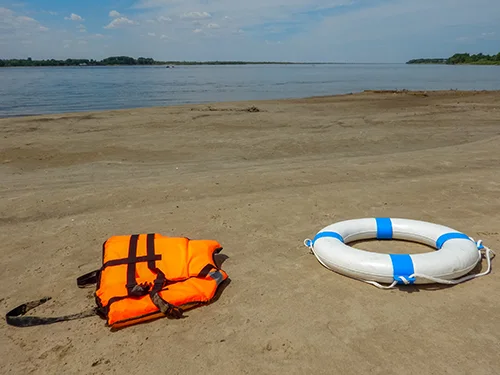
The risks
While spending time in natural bodies of water—like oceans, lakes, and rivers—can help you stay active, it is important to know that the water we swim, play, wade, and relax in can also spread germs.
Germs found in the water and sand often come from human or animal feces (poop). One way germs can be carried into swim areas is by heavy rain, which can carry whatever it comes in contact with (for example, poop from animals) into swim areas. These germs can also come from humans or animals pooping in or near the water.
Water contaminated with these germs can make you sick if you swallow it. It can also cause an infection if you get into the water with an open cut or wound (especially from a surgery or piercing).
Steps to take
Taking a few simple steps when you visit oceans, lakes, rivers, and other natural bodies of water can help protect everyone from these germs.
Know before you go
- Before you head out, check online to find out if the swim area is currently monitored, is under advisory, or has been closed for health or safety reasons. This is especially important after a heavy rain.
- If your body's ability to fight germs is already affected by other health problems or medicines, check with your healthcare provider before swimming in oceans, lakes, rivers, and other natural bodies of water.
Stay out of the water if
- Signs say the swim area is closed.
- The water looks cloudier than usual, is discolored, or smells bad. Cloudy water can be a warning that there are more germs in the water than normal. Discolored or smelly water could mean there is a harmful algal bloom (HAB) in the water.
- You see any pipes draining into or around the water.
- You are sick with diarrhea.
- You have an open cut or wound (especially from a surgery or piercing). If you do go in the water while a cut or wound is still healing, use waterproof bandages to completely cover
Once you are in the swim area
- Don't swallow the water.
- Keep sand away from your mouth and children's mouths.
- Don't poop in the water.
- Every hour, take kids on bathroom breaks and check diapers. Diapers should be changed in a bathroom or diaper-changing area to keep germs away from the water and sand.
- Wash your hands for 20 seconds before eating food, especially if you have been playing in or touching sand.
Source: cdc.gov

